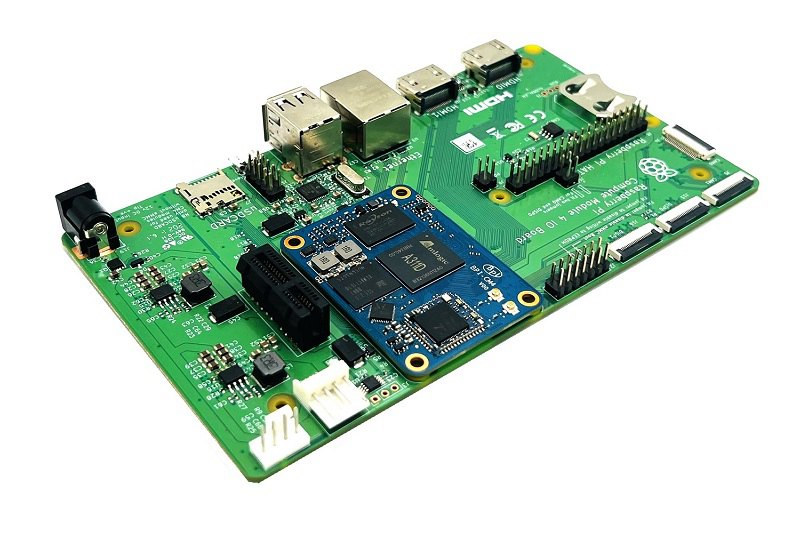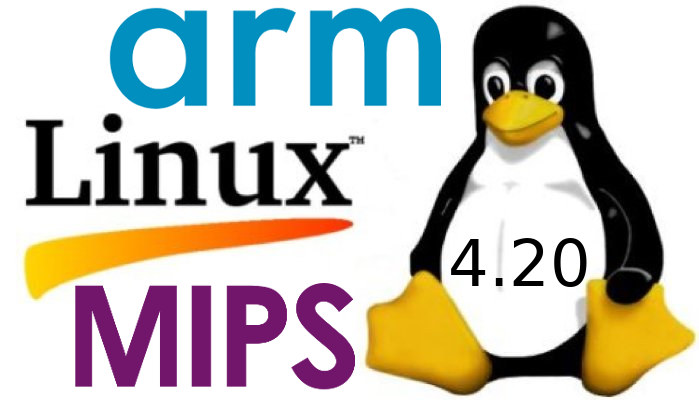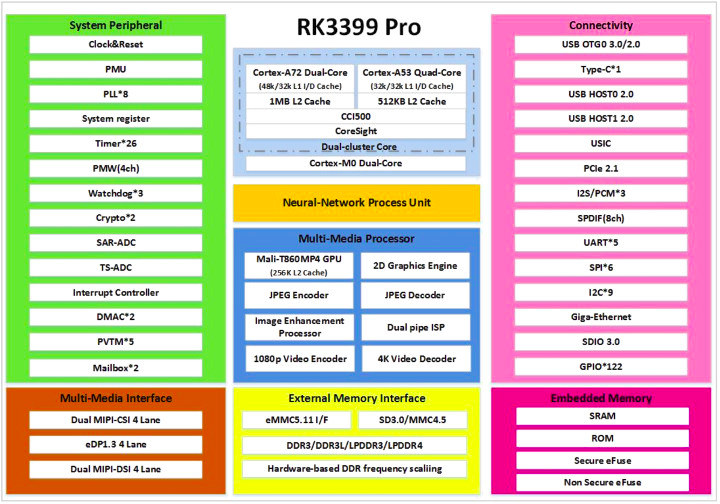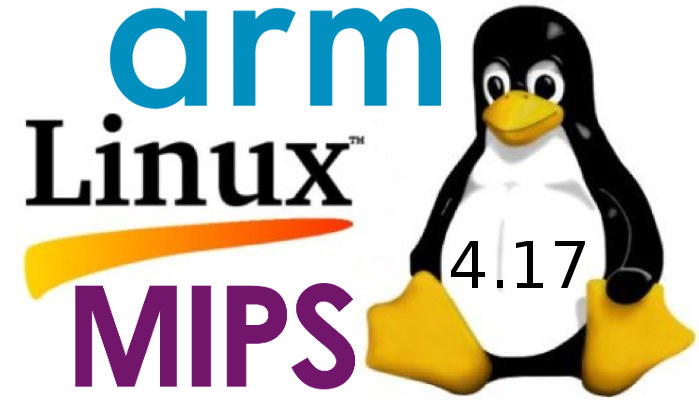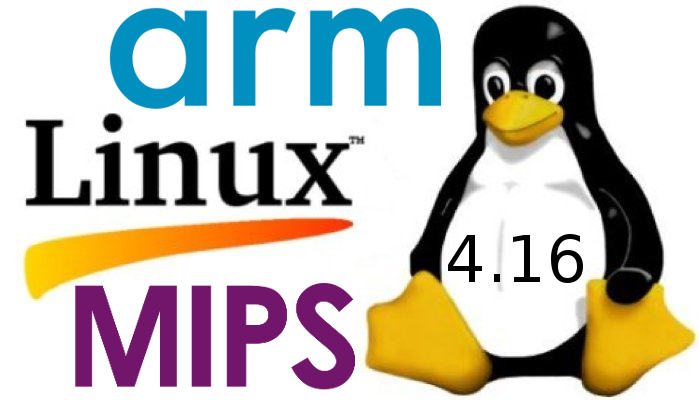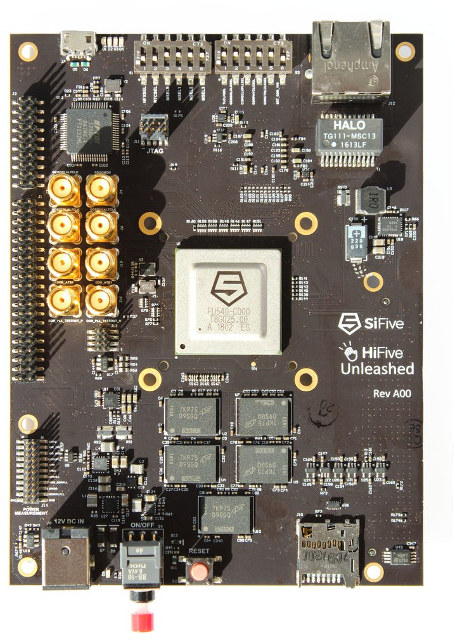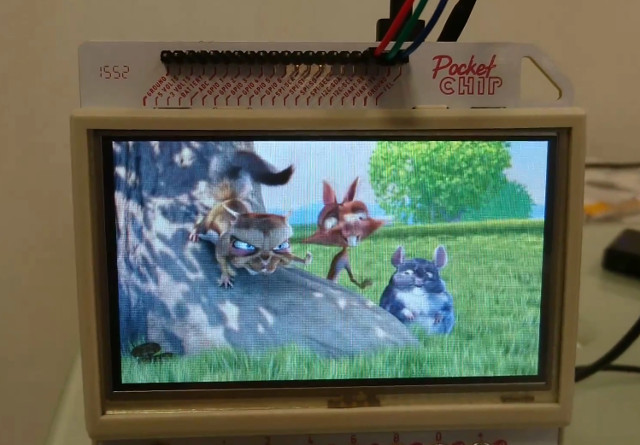Banana Pi BPI-CM4 system-on-module powered by an Amlogic A311D hexa-core Cortex-A73/A53 processor and compatible with the Raspberry Pi CM4 module has now been launched for $95 and up. Banana Pi introduced the Raspberry Pi CM4 compatible module with Amlogic A311D CPU last May with some 3D renders and specifications, and we expected a launch in Q4 2022 or Q1 2023 at the time. The Banana Pi BPI-CM4 is now available together with a carrier board so let’s have another look. Banana Pi BPI-CM4 specifications: SoC – Amlogic A311D hexa-core processor with 4x Arm Cortex-A73 @ 2.0 GHz and 2x Arm Cortex-A53, Arm Mali-G52 MP4 (6EE) GPU, 5 TOPS NPU System Memory – 4GB LPDDR4 RAM Storage – 16GB eMMC flash (up to 128GB) Networking Realtek RTL8211F Gigabit Ethernet PHY on-module Dual-band WiFi 5 up to 867Mbps and Bluetooth 5.2 via Realtek RTL8822CS module and 2x u.FL antenna connectors 2x 100-pin […]
Linux 4.20 Release – Main Changes, Arm and MIPS Architectures
After Greg K-H handling Linux 4.19 release, Linus Torvalds is back at the helm, and released Linux 4.20 just before Christmas: Let’s face it, last week wasn’t quite as quiet as I would have hoped for, but there really doesn’t seem to be any point to delay 4.20 because everybody is already taking a break. And it’s not like there are any known issues, it’s just that the shortlog below is a bit longer than I would have wished for. Nothing screams “oh, that’s scary”, though. And as part of the “everybody is already taking a break”, I can happily report that I already have quite a few early pull requests in my inbox. I encouraged people to get it over and done with, so that people can just relax over the year-end holidays. In fact, I probably won’t start pulling for a couple of days, but otherwise let’s just […]
More Details about Rockchip RK3399Pro SoC, and RK1808 NPU
First announced in January 2018, Rockchip RK3399Pro was supposed to be a pin-to-pin compatible with Rockchip RK3399 processor, and adding a Neural-Network Processing Unit (NPU) capable of delivering 2.4 TOPS for acceleration A.I. workloads. Shortly after Pine64 announced they’d be offering Rockpro64-AI board in August, and later on Vamrs unveils ROCK960 PRO at a Linaro Connect event with an expected Q2 2018 launch. But none of the RK3399Pro boards are available, as there have been delays with RK3399Pro, and some commented an external NPU would be launched first with further details. But today – courtesy of Vamrs – we have some more details about RK3399Pro features, a likely explanation for the delay, and some information about Rockchip RK1808 NPU chip. Contrary to the CES 2018 announcement, Rockchip RK3399Pro will come in a 27x27mm FCBGA1372 package instead of the 22x22mm FCBGA828 package for RK3399. So pin-to-pin compatibility is out of […]
Linux 4.17 Release – Main Changes, Arm & MIPS Architectures
Linus Torvalds released Linux 4.17 last Sunday: So this last week was pretty calm, even if the pattern of most of the stuff coming in on a Friday made it feel less so as the weekend approached. And while I would have liked even less changes, I really didn’t get the feeling that another week would help the release in any way, so here we are, with 4.17 released. No, I didn’t call it 5.0, even though all the git object count numerology was in place for that. It will happen in the not _too_distant future, and I’m told all the release scripts on kernel.org are ready for it, but I didn’t feel there was any real reason for it. I suspect that around 4.20 – which is I run out of fingers and toes to keep track of minor releases, and thus start getting mightily confused – I’ll switch […]
Linux 4.16 Release – Main Changes, Arm and MIPS Architectures
Linus Torvalds has just released Linux 4.16: So the take from final week of the 4.16 release looks a lot like rc7, in that about half of it is networking. If it wasn’t for that, it would all be very small and calm. We had a number of fixes and cleanups elsewhere, but none of it made me go “uhhuh, better let this soak for another week”. And davem didn’t think the networking was a reason to delay the release, so I’m not. End result: 4.16 is out, and the merge window for 4.17 is open and I’ll start doing pull requests tomorrow. Outside of networking, most of the last week was various arch fixlets (powerpc, arm, x86, arm64), some driver fixes (mainly scsi and rdma) and misc other noise (documentation, vm, perf). The appended shortlog gives an overview of the details (again, this is only the small stuff in […]
Open Source Software Releases – VLC 3.0 and Android-x86 7.1-r1
Two completely unrelated open source projects have released a stable version of their software this week, but instead of writing a post for each I’ll write about them in a single post. VLC 3.0 Vetinari VLC developers have just released version 3.0 – codenamed Vetinari – of the popular media player with new features such as ChromeCast support, and 8K video playback. Other highlights from the release include: Hardware decoding enabled by default to get 4K and 8K playback 10-bit and HDR support (only on Windows 10 Fall Creators Update for now) 360 video and 3D audio, up to Ambisoncics 3rd order Allows audio passthrough for HD audio codecs Can play Blu-Ray Java menus: BD-J Browsing of local network drives and NAS VLC 3.0 is also the first major version to be released for all platforms at the same time, and you can download VLC 3.0 for Windows, Mac OS […]
SiFive Introduces HiFive Unleashed RISC-V Linux Development Board (Crowdfunding)
RISC-V free and open architecture has gained traction in the last couple of years. SiFive has been one of the most active companies with RISC-V architecture, introducing Freedom U500 and E500 open source RISC-V SoCs in the summer of 2016, before launching their own HiFive1 Arduino compatible board, and later the official Arduino Cinque board. That’s fine if you are happy with MCU class boards, but RISC-V is getting into more powerful processors, and recently got initial support o Linux 4.15, so it should come as no surprise the company has now launched HiFive Unleashed, the first RISC-V-based, Linux-capable development board. HiFive Unleashed key features and specifications: SoC – SiFive Freedom U540 with 4x U54 RV64GC application cores @ up to 1.5GHz with Sv39 virtual memory support, 1x E51 RV64IMAC Management Core, 2 MB L2 cache; 28 nm TSMC process System Memory – 8GB DDR4 with ECC Storage – 32MB […]
Bootlin Wants to Bring Allwinner VPU Support to Mainline Linux (Crowdfunding)
I wrote about Free Electrons several times in the past due to their work on porting Arm SoCs to mainline Linux. Free Electrons is no more. But don’t be sad, as it’s not because they closed shop, but instead they changed their name to Bootlin due to trademark trolls. Free Electrons Bootlin intensively worked on Allwinner processors, for example working with Next Things Co. to add CHIP board to mainline Linux, or more recently adding support for OpenGL ES in mainline Linux, albeit with closed-source user space binary blobs. The company normally work with partners for their work, but for their latest initiative aiming to bring Allwinner VPU (Video Processing Unit) to the official Linux kernel there’s asking funding from the community through a Kickstarter campaign. For those who do not know, the VPU is the IP block within the SoC used for hardware video decoding of codecs such as MPEG2, […]


